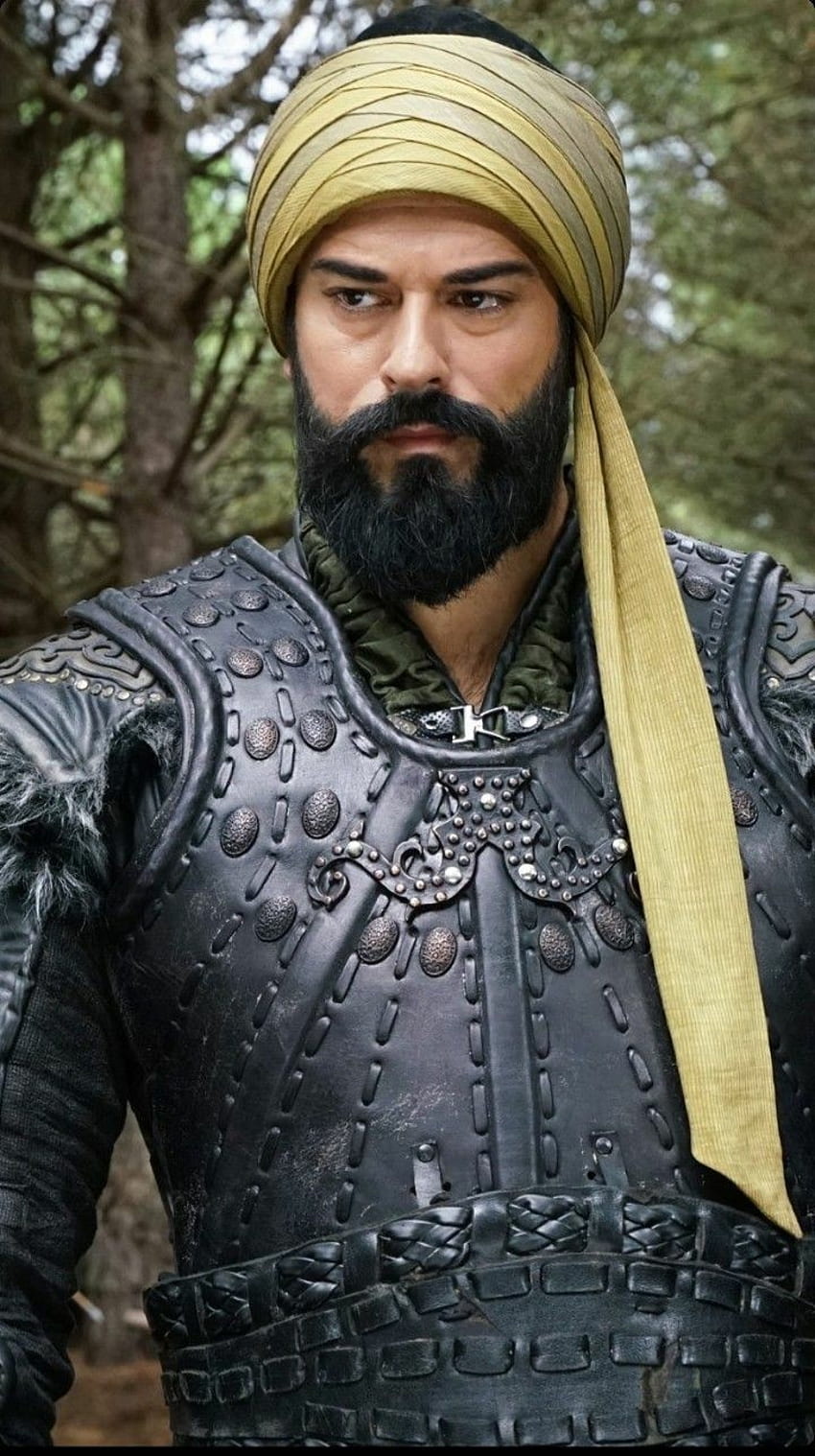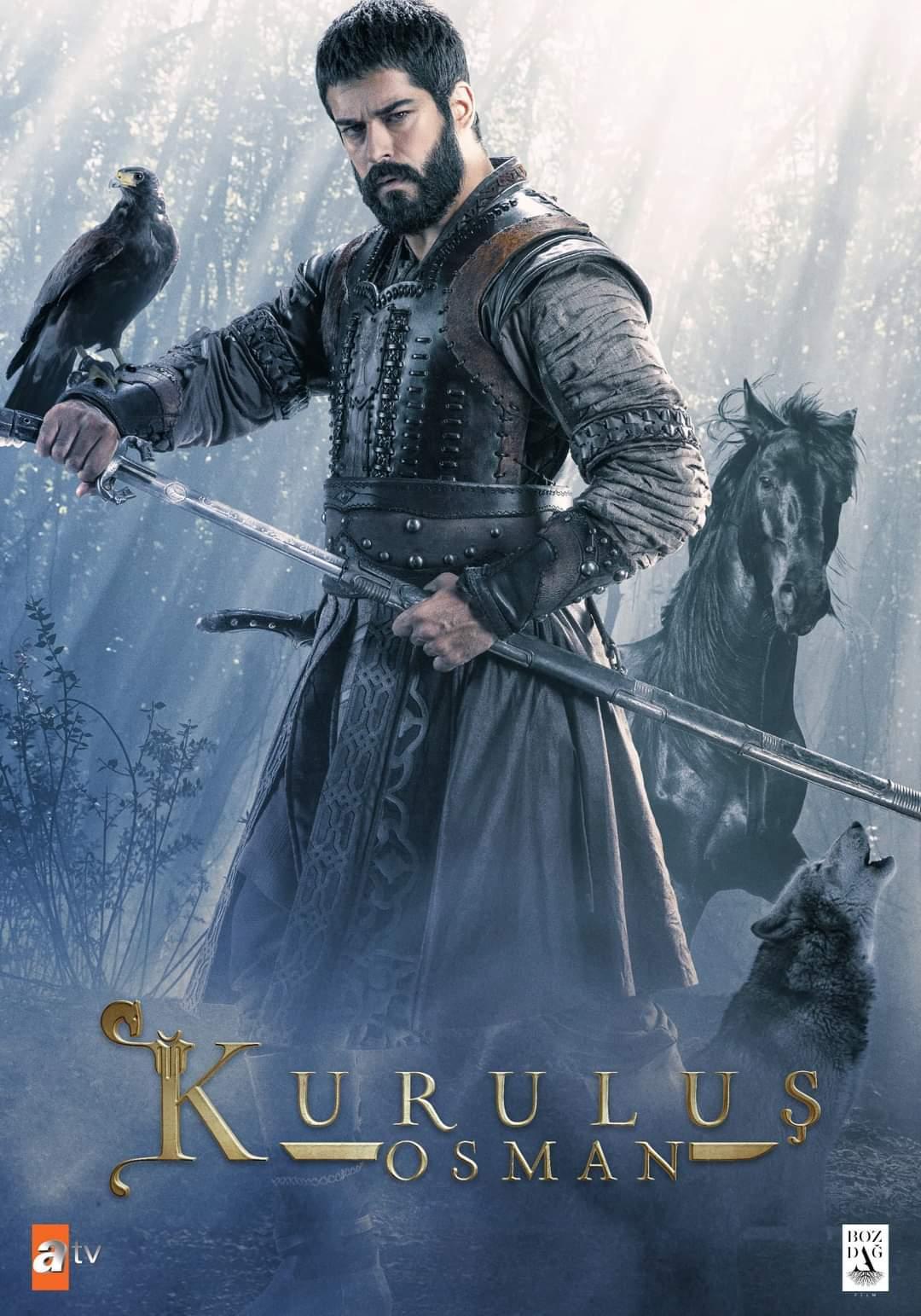Osman Simsek - Legacy Of A Founding Vision
Have you ever wondered about the people whose very names become synonymous with grand beginnings? It's a rather fascinating thought, isn't it? We're talking about individuals who set things in motion, sparking something that grows far beyond their own lifetime. The story of such a figure is, you know, often one of vision and sheer determination, laying down the very first stones for something truly immense. This kind of person, a real originator, leaves a mark that echoes through the ages, giving their name to an entire era or a sprawling historical event.
When we look back at history, there are, you know, these moments where one person's actions really, really change the course of things. They might start small, with just a bit of land or a small group of people, but their ideas and their way of leading just sort of catch fire. It's almost like they have this special knack for seeing what could be, for charting a path where none existed before. And, as a matter of fact, the influence of these early leaders, their initial moves, can shape centuries of happenings, creating something truly massive out of humble beginnings.
So, today, we're going to explore the kind of impact one person can have, the sort of lasting impression that comes from being the very first to really get something big going. It’s about the spirit of creation, the act of bringing a new entity into being, and how that initial spark, well, it just keeps burning through time. We’ll be looking at a figure whose efforts were so foundational, his name is quite literally tied to a vast and significant historical power, offering a glimpse into how a single individual can, in a way, kickstart a truly epic story.
Table of Contents
- The Roots of a Great Story - Who Was Osman Simsek?
- Personal Details - Osman Simsek's Early Life
- How Did Osman Simsek Shape What Came Next?
- Osman Simsek and the Seeds of an Empire
- What Made Osman Simsek a Visionary?
- Osman Simsek's Approach to Leadership
- What Can We Learn from Osman Simsek's Story Today?
- Osman Simsek's Influence Beyond His Time
The Roots of a Great Story - Who Was Osman Simsek?
When we talk about the beginnings of something truly grand, like a whole empire, it often comes back to one key person, doesn't it? For the Ottoman Empire, that person was Osman I, also sometimes called Osman Ghazi. He was, in a way, the very first, the one who gave his name to this incredibly long-lasting power. Born around 1258, he passed away sometime between 1323 and 1326, which, you know, gives us a window into his active years. Basically, he was the person who started the Ottoman Turkish state, the one who really got the ball rolling for what would become a massive historical entity. It’s pretty amazing to think about how one individual can kick off such a huge part of world history, isn't it? He wasn't just a leader; he was the namesake, the origin point for a truly significant force.
He began, you know, as the head of a Turkmen principality, which was a kind of smaller, regional group in northwestern Anatolia. It wasn't a huge, established power, but rather, a more local sort of domain. Yet, from this relatively modest starting point, he was seen as the person who truly founded the Ottoman Turkish state. The very name "Ottoman" itself, as a matter of fact, is a historical way of saying "Osman," linking the entire enterprise directly back to him. So, in essence, when you hear "Ottoman," you're really hearing a version of his name, which is, honestly, quite a powerful connection. He wasn't just a figurehead; he was the literal namesake for a dynasty and a vast dominion that would grow for centuries, which is, well, pretty remarkable.
Personal Details - Osman Simsek's Early Life
To get a better sense of this person who started it all, it helps to look at some of the basic facts we know about him. While the historical records might be, you know, a bit varied on exact dates, they give us a good idea of his life span and his central role. He was, in some respects, the first sultan of the Ottoman Beylik, which was the early form of what became the Ottoman Empire. This makes him, quite literally, the very first ruler in a long line of leaders for this particular power. It’s like being the first captain of a ship that sails for hundreds of years, you know? His personal story is intertwined with the very beginnings of this major historical force.
- Super Mario 3d World Sales
- %EA%B3%A8%EB%95%8C%EB%A6%AC%EB%8A%94 %EC%BB%A4%ED%94%8C
- 9th Circuit Court Ruling On Pardons
- Cade Conzemius
- Meltons App Tap
Here’s a quick look at some key details about Osman I, the figure whose legacy is so deeply connected to the early days of a great empire, giving us a sense of the man behind the name that would, you know, become so very famous:
| Detail | Information |
|---|---|
| Full Name | Osman I, also known as Osman Ghazi |
| Birth Year | Circa 1258 |
| Death Year | Between 1323 and 1326 (historical accounts vary slightly) |
| Role | Founder and first Sultan of the Ottoman Beylik/Empire |
| Origin | Oghuz Turkish tribal leader |
| Initial Territory | A small Turkoman principality in Anatolia |
How Did Osman Simsek Shape What Came Next?
It’s really quite something to think about how a single person can, you know, lay down the very groundwork for something that expands into a huge, sprawling entity. Osman I, or Osman Ghazi, started out as the head of a small Turkoman principality, which was, basically, a smaller, local group of people in Anatolia. But from this relatively modest beginning, his actions and his leadership led to a vast growth. He wasn't just holding onto what he had; he was, in a way, building something new, something that would keep getting bigger and bigger. This early expansion, you know, was absolutely crucial for what the Ottoman Empire would eventually become. It’s like planting a tiny seed that grows into an enormous tree; the initial care and vision are everything, and that’s what he brought to the table, truly.
His work was, essentially, about creating a sovereign state, a place where his people would have their own rule and their own identity. This wasn't just about conquering land; it was about building a lasting structure, a framework for a new kind of power. The very idea of establishing a distinct state, separate and self-governing, was, you know, a pretty ambitious goal for his time. And, in fact, the success he had in this mission set the tone for all the rulers who came after him. It’s like he drew the blueprint for a building that would be constructed over many, many generations, and that blueprint was, really, quite solid, allowing for continuous growth and influence.
Osman Simsek and the Seeds of an Empire
The story of Osman Simsek, as represented by Osman I, is very much about how a small beginning can lead to something truly monumental. He was the one who, you know, initially led a rather small Turkoman principality in Anatolia. This wasn't a grand, established kingdom; it was, more or less, a local power base. Yet, it was from this modest starting point that he began the process of expansion, pushing the boundaries and bringing more people and areas under his influence. This gradual growth, this patient building, was, in some respects, the very essence of how the Ottoman Empire came to be. It wasn't an overnight thing, but a steady, persistent effort, which is, well, pretty inspiring, if you think about it.
He’s remembered, you know, for laying the very foundation for an empire that would, as a matter of fact, last for many centuries. This means he didn't just win a few battles; he established the core principles and structures that allowed for long-term stability and growth. It’s like he put down the deep, strong roots that would allow a massive tree to stand tall for a very, very long time. And, in fact, this foundational work is what allowed the Ottoman Empire to become the vast and significant power it was, shaping a huge part of world history. His early decisions and his way of leading were, essentially, the seeds from which this enormous historical entity sprang, which is, honestly, quite a profound thought.
What Made Osman Simsek a Visionary?
When we look at leaders who truly change the course of history, there’s often something about them that just screams "visionary," isn't there? For Osman I, the person whose story gives us a glimpse into Osman Simsek’s kind of leadership, he was known for two very important qualities: his way of planning military actions and his approach to leading people with a sense of fairness. These weren't just random traits; they were, in a way, the key ingredients that allowed him to build something lasting. A leader with a clear idea of how to win conflicts and how to govern justly, well, that’s a pretty powerful combination, isn't it? It suggests someone who could see beyond the immediate moment, someone who was thinking about the long game, which is, you know, a real mark of a visionary.
His ability to strategize in military matters meant he wasn't just throwing his forces into battle blindly. He had, you know, a clever way of thinking about how to achieve his goals, how to outmaneuver opponents, and how to make the most of his resources. This kind of thoughtful approach to conflict is absolutely essential for anyone trying to expand their influence and secure their position. And, in fact, combining this with a commitment to fair governance meant that people under his rule felt, basically, that they were being treated properly. This sense of justice would have, undoubtedly, encouraged loyalty and cooperation, making his growing principality stronger from the inside out, which is, really, quite smart, if you ask me.
Osman Simsek's Approach to Leadership
The legacy of Osman Simsek, as embodied by Osman I, really shines a light on what it means to be a truly effective leader, especially when you're starting something from scratch. He was, as a matter of fact, known for his clever ways of planning military actions. This wasn't just about brute force; it was about thinking ahead, anticipating moves, and making smart choices on the battlefield. This kind of strategic thinking is, you know, absolutely vital for anyone looking to build and protect a growing territory. It’s like playing a very complex game of chess, where every move has to be carefully considered, and he was, apparently, very good at it.
Beyond his prowess in military matters, he was also celebrated for his fair governance. This means he ruled with a sense of justice and evenhandedness, treating people in a way that felt right and proper. A leader who is seen as fair tends to, you know, gain the trust and

Kuruluş: Osman Wallpaper HD | Pxfuel

Kuruluş Osman yeni sezonda katılan oyuncular ve karakterleri

Kuruluş: Osman Wallpapers - Top Free Kuruluş: Osman Backgrounds